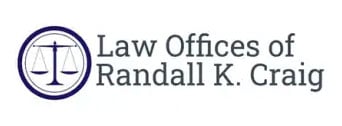CURRENT ISSUES IN THE AREAS OF ESTATE, TAX
AND PERSONAL AND BUSINESS PLANNING
The information that follows summarizes some of the current issues in the areas of estate, tax and personal and business planning which may be of interest to you. Although this information is accurate and authoritative, it is general in nature and not intended to constitute specific professional advice. For professional advice or more specific information, please contact my office.
The “Fiscal Cliff” Legislation
The American Taxpayer Relief Act of 2012 has now been enacted. The key features of the Act include permanently extending the current tax rates for individuals earning less than $400,000 and couples earning less than $450,000 (those taxpayers will see an increase in the rate from 35% to 39.6%), as well as an increase on capital gains and dividends from 15% to 20%. The estate tax exemption will remain at the current $5.12 million per person, indexed for inflation (estimated to increase to $5.25 million in 2013). However, the top estate tax rate will increase from 35% to 40%. Portability is extended, which means that a surviving spouse can use a deceased spouse’s unused exemption amount so that the two spouses together will be entitled to a total “exemption equivalent” amount of $10.24 million (estimated to increase to $10.5 million in 2013). Other changes include the elimination of the payroll tax holiday, which means that the payroll tax rate will now revert to the pre-2011 level of 6.2%. There was also a slight increase in Older Americans Act funding.
Another Retirement Plan Suggestion
Although a taxpayer’s typical inclination is to minimize or defer withdrawals from retirement plans, there are instances when it may be advantageous to take extra distributions (or perhaps even to convert to a ROTH IRA). If your tax rate is lower in a given year, it may make sense to withdraw enough from your retirement plan to at least use up the amount that can be taken within a particular tax bracket (remember from a previous article that if too much is withdrawn, the excess can be rolled back into the IRA if all of the technical requirements of a tax-free rollover are met). It may also make sense to take extra distributions if you are overweighted in retirement funds in order to achieve a greater balance between your retirement plan assets and your other investments. It should be remembered also that in the event of death, when your children “inherit” your retirement plan dollars by means of a beneficiary designation, ultimately, their receipt of those moneys will be taxed even if the taxation can be deferred over the beneficiaries’ life expectancies. In many instances, the ancestor’s tax bracket will be less than the beneficiaries, and it may be better for the beneficiaries to inherit non-retirement dollars rather than taxable retirement plan assets. It is important to take a holistic view, which reflects the likely tax scenario of the entire family, when structuring retirement plan investments and withdrawals.
Other Asset Protection Considerations
Previous articles addressing certain aspects of asset protection planning have highlighted the importance of exerting efforts to protect assets before the liability has actually arisen. Transfers which occur after the liability exists are subject to fraudulent transfer arguments and to attack in bankruptcy court. More important, perhaps, even than the transfers being considered (such as transfers to a trust of one or another type), is giving consideration to insurance. The penumbra of coverages may include professional liability insurance, umbrella coverage, errors and omissions coverage, and directors and officers coverage. Obviously all appropriate business coverages, including property and casualty, workers compensation, liability, sexual harassment, and other specialty coverages should be considered. Planning to protect assets is more important if an individual is involved in a risky enterprise or engaged in transactions which are subject to significant financial exposure. For people of even low or moderate means, asset protection planning is extremely important in order to protect assets against the costs of long term care. As in all planning, planning ahead is advantageous, particularly when considered in light of the five-year “lookback” period applicable to long term care planning in the context of Medicaid. Time is your best friend in this realm of planning, and the catchphrase “old and cold is good” is apt.
Providing For Grandchildren
Many people wish to “skip” a generation, at least to an extent, and bypass their children as to a portion of the ancestor’s estate in order to provide for the needs of grandchildren. There are many non-tax reasons for doing so, such as the goal of assuring that a grandchild’s college education will be paid for. It is certainly possible to provide benefits to both children and grandchildren, whether in trust or by providing for a direct distribution to the beneficiaries. Gifts can be made to education accounts, or assets can be used to fund a trust which is for the specific purpose of providing for education and which authorizes discretionary distributions to pay for appropriate undergraduate or other education expenses. One issue to be considered in the case of a trust is whether the funds should be used for the benefit of a grandchild’s education even if the parent or the grandchild independently has the ability to cover those expenses. Consequently, frequently the trustee is given the discretion to determine whether or not there is a need for the funds to be used to cover particular education expenses. It is also important to take into consideration the disparity of ages between beneficiaries, as obviously an older beneficiary will have received much more benefit directly prior to the receipt of the trust funds than a younger beneficiary who will rely more on the receipt of trust funds because of the existence of the trust for a longer period of time in respect of the particular younger beneficiary.

